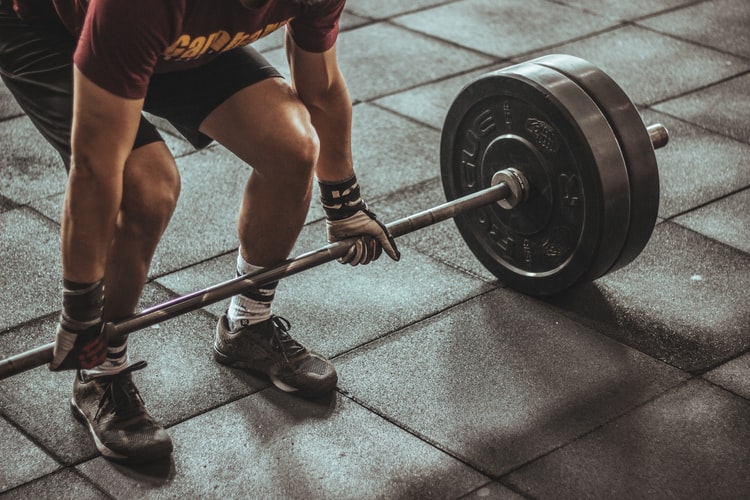Being a beginner at lifting weights can feel really overwhelming – there are so many different ways of doing things, factors to keep in mind, contrasting opinions and not to mention gym anxiety. However, as with most things, taking it back to basics is the very best place to start before overcomplicating things with technicalities. While there are loads of important and very helpful tips and tricks you can learn along the way, here are a few basic things to keep in mind at the start of your journey.
What Muscles to Train
It can be easy to get caught up in the excitement of achieving your ultimate physique goals, and that excitement is a great feeling to have! But it’s important not to let your preferences or ideals take over your time spent training. Your dreams of strong glutes shouldn’t dictate your training routine to the extent that you neglect your upper body completely, and the same applies vice versa (skipping leg day is a common mistake we’ve all seen the repercussions of). Despite what your goals might be, a balanced physique is in your best interests which means that you’ll need to dedicate time and effort to train all muscle groups. This also includes the lesser-known and smaller muscle groups, such as your rotator cuffs and rhomboids. This recent article by steelsupplements.com sheds a little light on this if you need some more information.
How Often to Train
A common misconception is that if you want to see gains, you need to be in the gym for at least a few hours, 6 days a week. Truth be told, anyone can make great progress in the gym with a dedicated and consistent 4 days a week, paired with a solid meal plan and the right supplements. Overtraining can be just as damaging to your progress as undertraining – your muscles will only grow and build in the recovery phase. This means that taking the time to rest each muscle group and incorporate good sleep hygiene into your lifestyle are going to help you see results quickly as well as improve your performance on your training days.
What to Eat
Abs are made in the kitchen, and so are the rest of your muscles. All your hard work, sweating it out and pumping iron are going to be close to meaningless if you aren’t fuelling your body correctly. But what and how much should you be eating? The answer to that question is going to look different for everybody and it’s a good idea to consider what your long term goals are and over what time period you want to achieve them before talking to a professional in the industry or at least calculating your macros. This will help you understand more or less how much you should be eating, but it’s also important to remember to listen to your body since some heavy training days might require more fuel than others. Considering what to eat is also dependent on your personal diet preferences, but for the best results in the gym, focusing on a high protein, minimally processed diet is going to give you the most bang for your buck (or rather, all your efforts).
What Supplements to Take
A healthy, strong and fit body can be achieved entirely naturally and no supplements are a requirement in any fitness journey. However, there are a few things that can aid you in reaching your goals. Some things you might want to include in your supplement arsenal are a protein supplement (whey isolate or plant protein if you’re vegan), creatine and a good pre-workout. Anyone can get enough protein through their diet by focusing on nutrient-dense, high protein meals and snacks throughout the day, but there’s nothing wrong with getting a little help especially if you’re not a big meat eater. Getting in enough protein on a day-to-day basis is imperative in muscle growth so investing in a good protein powder to add to smoothies or oatmeal or simply drinking as a shake can help get those numbers up when you’re struggling. Creatine is another great help for increasing muscle mass and improving your performance in the gym. Finally, a pre-workout can offer you a hit of caffeine when you’re feeling low on energy or head to the gym first thing in the morning, but a steaming cup of coffee can do the job just as well if your pocket is already pinched.
